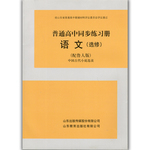题目内容
A sentence has one or more clauses besides the main clause.
- A.complex
- B.combined
- C.compound
- D.complicated
complex sentence复合句;compound sentence并列句;combined组合的,结合的;complicated复杂的,难解的。

 海淀黄冈名师导航系列答案
海淀黄冈名师导航系列答案 普通高中同步练习册系列答案
普通高中同步练习册系列答案 优翼小帮手同步口算系列答案
优翼小帮手同步口算系列答案根据短文内容,从短文后的选项中选出能填入空白处的最佳选项。选项中有两项为多余选项。
Speaking in public is most people’s least favorite thing. The reason is that we are all afraid of making fool of ourselves. .
But stop biting your finger-nails. Public speaking is easy. It’s just plain talking, and you talk all the time. Although I’m basically shy (honest!). I’ve been making speeches and talking on radio and television for more than 30 years. And I can tell you that public speaking is not a “gift” like musical talent , so .Here are some of the lessons I have learned:
Your audience is going to go away with one or two of your main ideas.One or two.Not ten or twenty. .And if you don't have a clear idea of what you want to say, there's no way your audience will. —how you are going to open, what major points you want to make and how you're going to close.
When I do a radio or TV piece, I often write the last sentence first. .A strong close is critical; the last thing you say is what your audience will most likely remember.
The standard length of a audio-visual act is usually 12 minutes.If all those performers singing and dancing their hearts out couldn't go on longer without boring the audience, what makes you think you can?
| A. Some people are born to be good at making speech |
| B. Anybody who can talk can speak in public |
| C. Try to relax yourself before making the speech |
| D. The more important the speech is, the more frightened we become |
| E. If you can't express in a sentence or two what you intend to get across, then your speech is not focused well enough. |
| F. When you know where you're heading, you can choose any route to get there |
| G. No matter how long or short your speech is, you've got to get your ideas organized. |
Poetry is an interesting form of writing. It is very free, has few restrictions and can be a great way to express feelings. Writing a poem is all about observing the world within you or around you.
To write a poem, first you should begin with an idea or inspiration. Inspiration may come at any time unexpectedly. It may be a specific person, place or thing that causes some sort of strong emotion. It may be more of an abstract idea or release of emotion.
After getting the idea, you can write down everything that comes to mind. Don’t think much and let all feelings pour out. Remember everything can be thrown out later.
Then, you can think about its form and begin to organize thoughts. Poetry comes in many forms, from epic poetry that has a story to dramatic poetry intended to be performed. Try them all out. One will come naturally. Maybe different poems fit different forms. When you write a poem, think about both meter (韵律) and rhythm carefully, which are equally important in poetry. Meter is the fixed pattern of the poem, while rhythm refers to the sound when it is spoken. It is also important to use a lot of descriptive words. Create imagery (意象) with words, trying to make them attractive to all the senses. For auditory (听觉的) interest, try repeating of similar sounds in a sentence or phrase. All of this adds life and interest to a poem.
After you finish your work, don’t be afraid to share your work with others. When others point out your weakness, accept and grow from it.
1.What does the underlined word “restriction” in Paragraph 1 probably mean?_______
|
A.Change. |
B.Order. |
C.Limitation. |
D.Organization. |
2.When you begin to write a poem, you should first .
|
A.begin with some specific persons |
B.come up with an idea |
|
C.describe a famous place |
D.organize your thoughts |
3.We can infer from the text that .
|
A.writing poems needs imagination and the ability to use language well |
|
B.people can get more ideas if they often share their poems with others |
|
C.people should first learn to write epic poetry, then dramatic poetry |
|
D.people need to write down every feeling they want to release at a time |
4.What’s the purpose of the text?_________
|
A.To tell readers how to write a poem. |
|
B.To encourage more people to write poems. |
|
C.To show what quality a good poem should have. |
|
D.To teach people how to appreciate poems. |
完形填空:(共20小题;每小题1分,满分20分)
When you are learning English, you find 21 wrong to translate a sentence word for word into your 22 language. Take the sentence “How do you do?” as an 23 . If you look 24 each word in the 25 , one at a time, what is your 26 ? It must be a 27 sentence in your native language. Languages do not only have different sounds, they are also 28 in many other ways. It is very 29 to master the rules of word 30 in the study of English, too. If the 31 puts words in a very unusual order, the listener doesn’t 32 the speaker’s sentence easily.
Another thing we must always 33 is that there are a lot of 34 in the English language. For example when we say “look out!” to a man who is in danger, we 35 mean “Be careful!”
When people are parting, they often say “Good—bye 36 ” “Bye—bye!” But sometimes they 37 say “Good morning!” or “Good afternoon!” or “Good evening!” 38 “Good night!” to one another 39 “Good—bye!” You will find few people 40 who know that “Good—bye!” is a short way of saying “God be with you!”
|
1. |
|
|
2. |
|
|
3. |
|
|
4. |
|
|
5. |
|
|
6. |
|
|
7. |
|
|
8. |
|
|
9. |
|
|
10. |
|
|
11. |
|
|
12. |
|
|
13. |
|
|
14. |
|
|
15. |
|
|
16. |
|
|
17. |
|
|
18. |
|
|
19. |
|
|
20. |
|